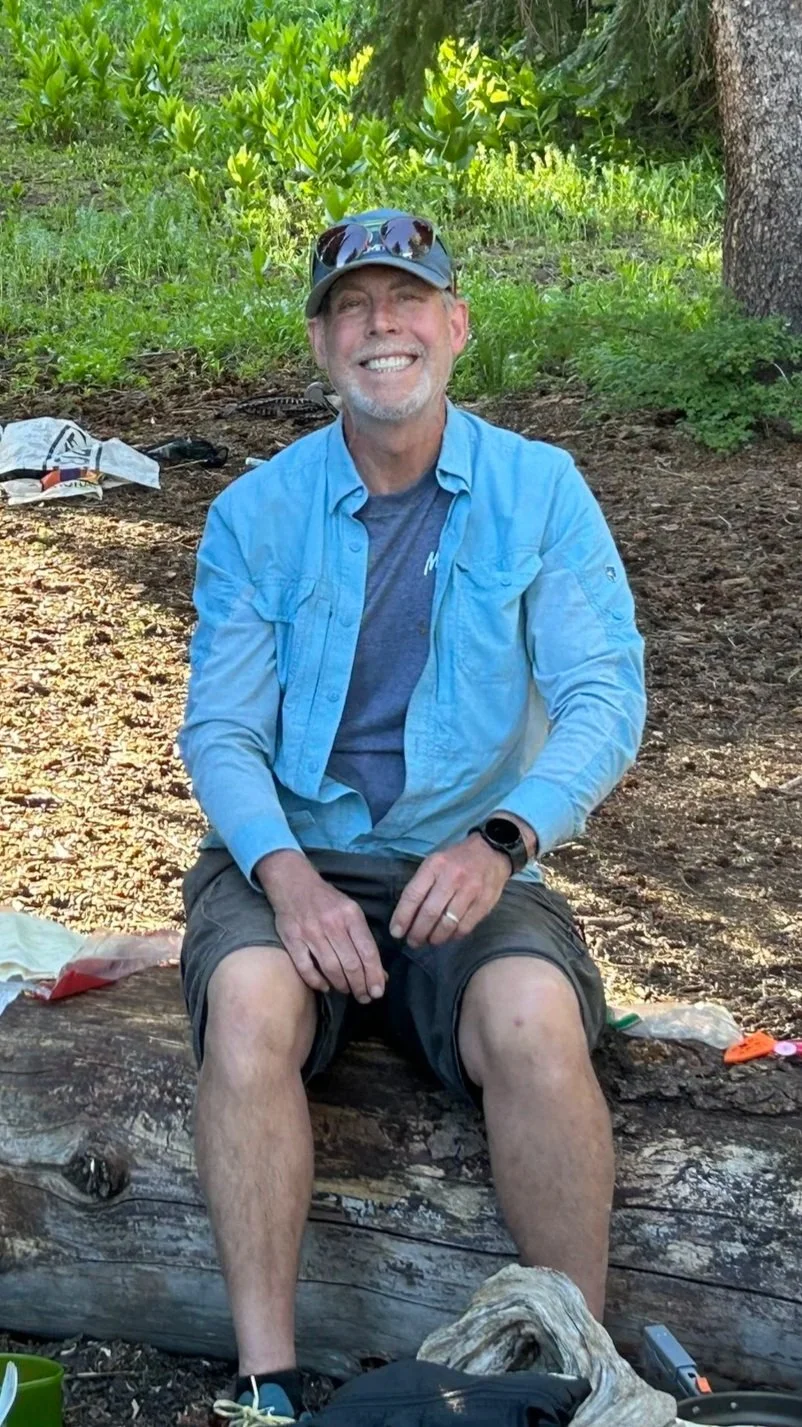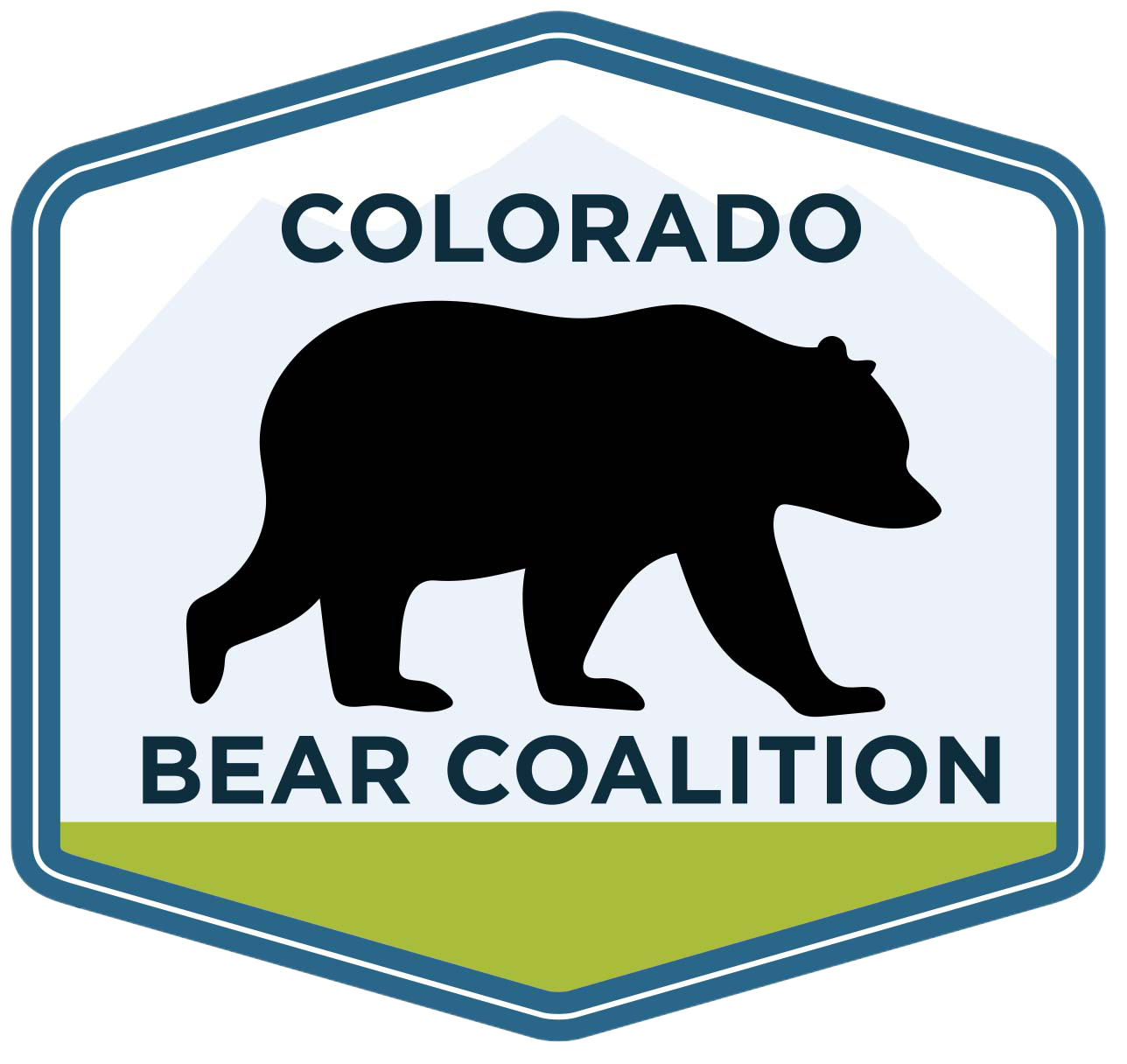
About Us
Leadership Team
-

Brenda Lee
FOUNDER & PRESIDENT
As the founder of Boulder Bear Coalition, Brenda drove the critical efforts to reduce human bear conflict in Boulder, Colorado. She is using experiences gained while running Boulder Bear Coalition to protect bears across the state.
With an educational and professional background in applied math and family systems therapy, Brenda brings analytical thinking and deep empathy to her efforts to reduce human-bear conflict. She is recognized for developing innovative, action oriented programs, while using a collaborative and systems based approach to reducing conflict.
Vitae
Boulder Bear Coalition
Sierra Club Magazine article
LinkedIn -

Stewart Breck
WILDLIFE ADVISOR
Dr. Stewart Breck is a wildlife researcher for the USDA National Wildlife Research Center. His research is focused on carnivore ecology and behavior and minimizing conflict between carnivores and people. Stewart bring a wealth of knowledge regarding nonlethal methods for preventing conflict and the influence of urban environments on carnivore ecology.
-

Jeff Marley
TECHNICAL ADVISOR
The founder and owner of Margo Supplies, Jeff has pioneered practical, non-lethal tools and behavior-based systems to reduce wildlife conflict. With 45+ years of experience, Jeff helps farms, agencies, and industry deploy reliable, humane solutions that protect operations and support wildlife conservation across North America and beyond.Jeff’s systems approach creates a “landscape of fear” around control areas, using calibrated visual, auditory, and mild adversive stimuli so animals learn to avoid high-risk zones—preventing the cycle where one removed animal is quickly replaced by another.
A committed conservationist, he and the company donate time, products, and funding to protect black, grizzly, and polar bears. -

Robert Ottinger
BUSINESS ADVISOR
Robert is the Founder and Executive Director of Reality Garage, a virtual reality company located in Boulder Colorado. With an extensive background in software, management and running a successful startup, Bob brings a wealth of experience and a ton of passion to protect wildlife to our efforts to reduce human-bear conflict in Colorado.
Partnerships
Colorado Bear Coalition is an active member of several statewide wildlife partnerships that strengthen our collective impact. These collaborations ensure our work is informed by the best available science, connected to statewide efforts, and grounded in strong partnerships that help improve outcomes for both people and wildlife. Partnerships include:
-
The Wildlife and Habitat Roundtable (WHR) is a forum that fosters information sharing on important topics between CPW and the non-consumptive wildlife user community on issues related to the state’s wildlife and habitats. Topics discussed by the WHR include species and habitat conservation, scientific research, policy and legislation, and emerging topics pertaining to wildlife. The Wildlife and Habitat Roundtable consists of member organizations representing non-consumptive user groups such as birders, botanists, wildlife rehabilitators, nature photographers, and conservationists.
-
DescripFocusing on human-bear interactions in urban-wildlife interfaces, the March 2024 Colorado Parks and Wildlife Bear Stakeholder Workshop brought together public partners, private partners, and CPW staff to increase understanding about bear management challenges and opportunities; build relationships; identify recommendations for ongoing collaboration; and identify recommendations to enhance bear management, minimizing conflicts to the greatest extent possible while continuing to have a robust black bear population.
The Human-Bear Conflict Working Group was established to continue discussions and build upon ideas arising at the March 2024 Workshop and has collectively identified reducing human-bear conflict by advancing successful, trust-based collaboration as the group’s purpose.
A second annual workshop in 2025 brought together key members to identify potential bear legislation for the 2026 legislative session.
Q&A with Executive Director Brenda Lee
What inspired you to start CBC?
In response to requests for help in reducing human-bear conflict across Colorado, a common theme emerged: while communities were motivated towards change they were overwhelmed by scale. They felt all alone in their efforts and overwhelmed by how much there was to do. The coalition created a network of support for communities to discuss problems, brainstorm solutions and reduce the number of bears killed in Colorado.
Which CBC project are you most energized by right now?
The statewide trash statute. We are proactively addressing the #1 cause of problem bear behavior by working with stakeholders across industries including city officials, trash haulers, residents, CPW, and nonprofits.
What do you wish people understood about human-bear conflict?
That bears in urban areas is a human problem, not a bear problem. We have tools to decrease the number of bears displaying nuisance behavior (as defined by CPW directive), which is often a lethal designation. The status quo is not working, and we can do better.
What are you most excited for in the next year of CBC’s work?
Expanding our impact by scaling our efforts. We have specific goals to reach in the next two years. This year’s focus is on working with stakeholders to create a statewide trash statue. By creating a more responsible balance between bears and humans we can ensure more bears live the life they were born to live. I’m excited to see what we will accomplish in 2025 and beyond!
How It All Began: Bears in Boulder
Brenda Lee founded the Boulder Bear Coalition in 2011 after a mother bear was killed in her neighborhood. Having moved to Boulder from Southern California, she had no idea that mountain lions and black bears frequently wandered through the neighborhoods. So when she learned that the mother bear had been euthanized by CPW, and that her cub had escaped capture, she immediately began asking questions. Why was the cub left behind? Would he survive?
Unsure of what she would actually do if someone spotted him, Brenda still put up a signs at the local trailheads asking hikers to keep an eye out and to call her if they saw the cub. No sightings came in, but plenty of neighbors did reach out -with a consistent message: Whatever you do, do not call CPW -they are bear killers!
This baffled her. Why would the agency responsible for managing wildlife be seen as “bear killers”? She even attended a lecture by a respected local wildlife expert, hoping for clarity, only to hear the same warning. Instead of accepting the narrative or seeing herself and her community as victims of a broken system, Brenda made a different choice: she became a CPW (then DOW) volunteer so she could learn directly from wildlife officers how they manage bears.
As she spent time with the officers, she shifted the questions back toward the community: rather than assuming the worst about the agency, shouldn’t we be asking ourselves why are the officers here in the first place? Which naturally led to the next question: why are the bears here? And that answer quickly pointed to one thing—trash.
She got to know the local trash haulers, walking alleys before sunrise, and discovered firsthand that bears weren’t wandering into town by accident. They were here for easy calories—and they knew the trash schedule. That realization marked a turning point. What began as concern for a single orphaned cub evolved into a career dedicated to understanding human-bear conflict and addressing its root causes.
And that is where Brenda’s core belief was born: this is not a bear problem—it is, fundamentally, a human problem.
